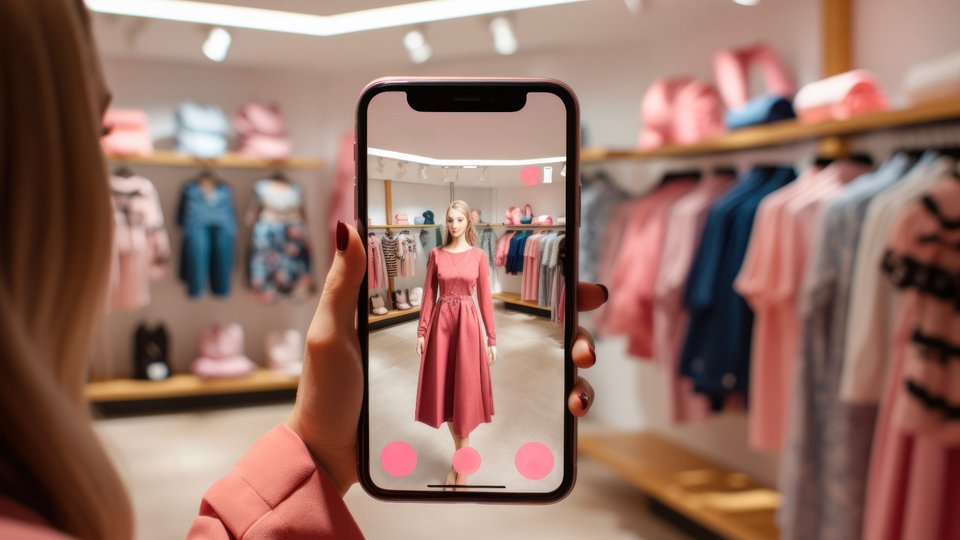AI
Navigating ethics and AI in retail
Brands and retailers have embraced AI as a transformative force. Yet, with great power comes great responsibility.

June 13, 2024 by Colin Bodell — Chief Technology Officer, Bazaarvoice
In their continuous pursuit of a competitive edge, brands and retailers have embraced AI as a transformative force. Yet, with great power comes great responsibility. While AI can help enhance operations and customer experiences, its unethical use poses significant risks, especially in user-generated content.
For example, it's easy for unethical organizations to employ AI tools to generate high volumes of fake ratings and reviews to boost the apparent value of their products or to generate negative reviews to impact a competitor.
Due to this AI-generated content, consumers are misled (at best) and misinformed (at worst) regarding the capabilities and qualities of products they are considering for purchase, eroding trust, and tarnishing brand reputations.
AI can be a powerful force for good, but only when employed ethically and authentically. Here are a few things for brands and retailers to keep in mind when utilizing AI.
Not all AI is the same
Generative AI has become an overused term. It's merely one branch of machine learning and AI. It's a tool that takes prompts and generates an output — text, an image, or other forms of media. Rather than starting with a tool, focus first on the problem you want to solve or the opportunity you wish to pursue.
Clearly defining success and its value to your organization will lead you to select the most appropriate tool more effectively. Using a chainsaw to drive in a nail may be an entertainingly novel use of a tool, but a hammer will be more effective.
Beware of AI snake oil salesmen
The influx of AI solutions has spawned a new breed of opportunists — AI snake oil salesmen. These entities capitalize on market hype, peddling AI products without substantive development or genuine value. Many reputable companies have invested significant funds, time, and energy to develop ML/AI solutions. They have experimented, failed, learned, and grown.
However, many other companies with little to no prior ML/AI investment promote existing, non-ML/AI-based technology using ML/AI terms or employing off-the-shelf tools in front of a limited data set as a highly valuable product. A "product" that could be easily replicated with much more care and attention.
When evaluating ML/AI-based solutions, it's important to understand what the seller claims the product can do and the evolution of its development. Heavily scrutinize claims and assess the evolutionary journey of purported AI solutions to avoid falling prey to empty promises.
Potential biases need to be considered
Explicit and implicit biases are, unfortunately, a reality within AI systems. If left unchecked, they amplify societal prejudices. Chatbots spewing offensive content prove the danger of deploying AI without due diligence. Brands must confront potential biases in AI applications, ensuring algorithms don't perpetuate harmful stereotypes or create inappropriate outcomes.
Data is central to AI's success, and the adage "garbage in, garbage out" holds particularly true in the AI domain. The quality, authenticity, and diversity of input data fundamentally shape AI outputs. Neglecting data integrity risks spreading misinformation and undermining brand credibility.
Brands, retailers should use AI in UGC programs, but ethically and responsibly
There are several ways AI can now be used in the UGC space. For instance, it can be employed to respond in real-time to customers' questions; it can summarize large amounts of reviews into summary takeaways for busy shoppers to read; or it can even help customers write a more thorough, well-rounded review.
But while AI makes so many aspects of a UGC program more efficient, using it ethically requires a delicate balance between automation and human ingenuity. Brands must see AI as an assistant, not a substitute, for human creativity and judgment. Upholding authenticity in UGC requires an absolute rejection of fraudulent content generation in favor of genuine, user-driven narratives.
Unfortunately, as we've seen in the news, generative AI has been used to write fake product reviews. In many cases, they don't represent the personal experiences of real consumers. Unscrupulous actors generate them to increase the volume of reviews for a product to drive greater conversion. Or they are created to flood a competitor's site with negative reviews to hurt sales.
The big challenge for shoppers with these fake reviews is that they base their purchase decisions on inauthentic information and are likely to be disappointed when they receive their product. While AI-generated reviews may temporarily boost sales, long-term customer trust and retention are eroded in the brand and UGC itself.
The intrinsic value of UGC lies not in its volume but in its authenticity — a testament to real experiences shared by real people who have really used a product. Brands and retailers must prioritize the trustworthiness of UGC, recognizing how important it is in fostering consumer confidence and brand loyalty.
The democratization of AI presents both opportunities and challenges. For example, small businesses and startups can leverage AI to compete with industry giants because they now have access to advanced capabilities. However, this democratization also highlights the urgency of its ethical usage. As AI becomes increasingly accessible, the onus falls on brands and developers to uphold ethical standards and safeguard against misuse.
Ultimately, brands and retailers can and should use AI to supplement human capabilities, not replace them. The relationship between AI and human expertise must be symbiotic, enriching customer experiences and organizational effectiveness. As stewards of AI, brands bear a profound responsibility to wield this technology ethically and responsibly.
About Colin Bodell
As CTO of Bazaarvoice, Colin Bodell is responsible for accelerating global technological innovation in support of the company's ambitious growth goals. With more than 37 years of experience in the technology industry, he's especially focused on hyper-growth tech organizations and growing their platforms at scale.
 ChatGPT
ChatGPT Grok
Grok Perplexity
Perplexity Claude
Claude




